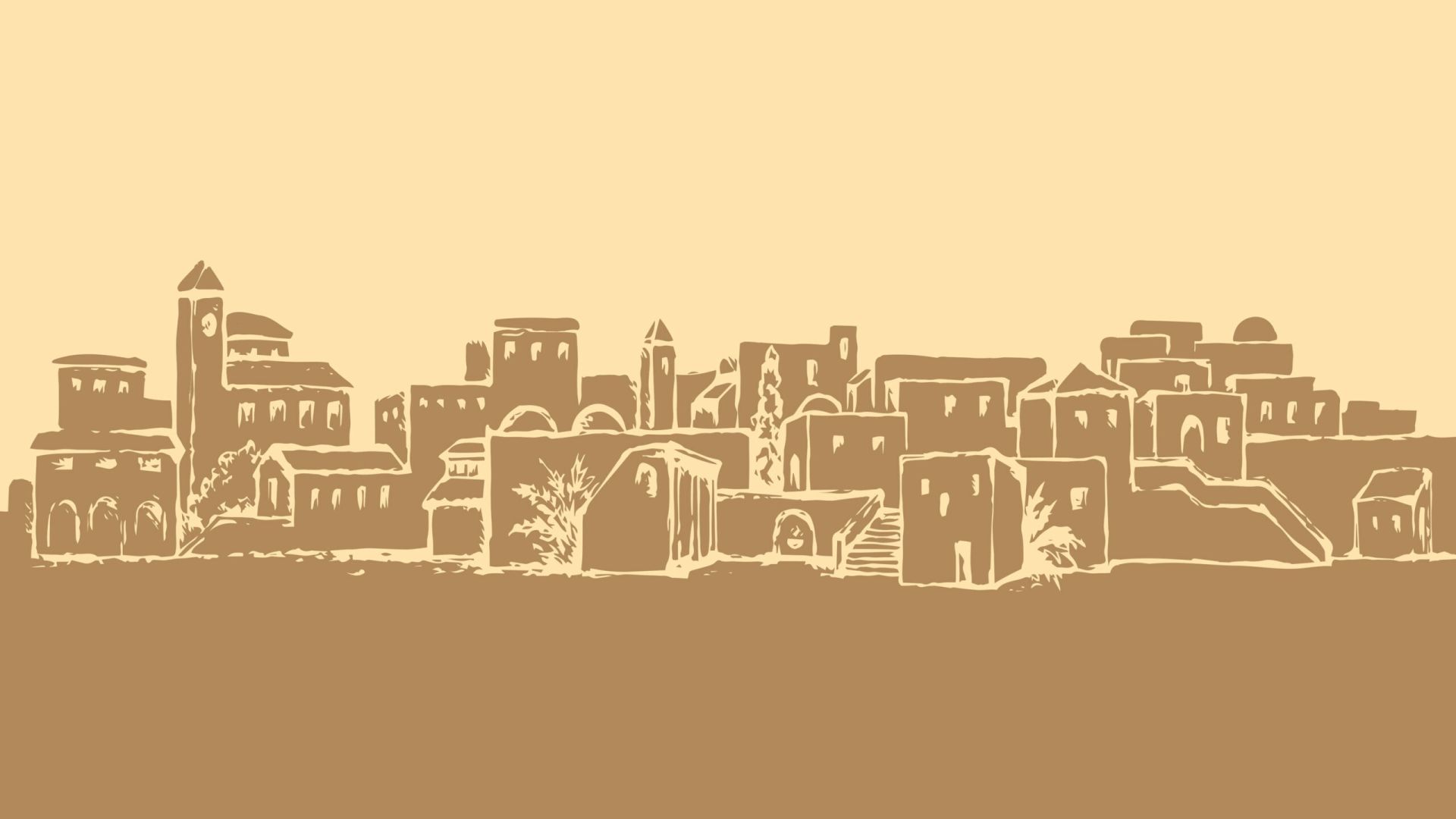The Rise of Nationalism in the Muslim World Is a Call to Pre-Islamic Jāhiliyyah
Al-Allāmah Muḥammad ibn ʿAlī ibn Ādam al-Ityūbī, Imām ʿAbd al-ʿAzīz ibn Bāz, Imām Muḥammad Nāṣir al-Dīn al-Albānī, Al-Ḥāfiẓ al-Nawawī, Al-ʿAllāmah ʿAbd al-Muḥsin al-ʿAbbād, Imām Muḥammad ibn Ṣāliḥ al-ʿUthaymīn, Shaykh al-Islām Ibn Taymiyyah, Imām al-Khaṭṭābī, Imām al-Ṣanʿānī
The Rise of Nationalism in the Muslim World Is a Call to Pre-Islamic Jāhiliyyah
Al-Allāmah Muḥammad ibn ʿAlī ibn Ādam al-Ityūbī, Imām ʿAbd al-ʿAzīz ibn Bāz, Imām Muḥammad Nāṣir al-Dīn al-Albānī, Al-Ḥāfiẓ al-Nawawī, Al-ʿAllāmah ʿAbd al-Muḥsin al-ʿAbbād, Imām Muḥammad ibn Ṣāliḥ al-ʿUthaymīn, Shaykh al-Islām Ibn Taymiyyah, Imām al-Khaṭṭābī, Imām al-Ṣanʿānī


- Introduction
- Supporting Evidence Proving the Illegitimacy of Nationalism
- The Call to Nationalism Is Forbidden Even When Praiseworthy Terms are Used
- The Call to Nationalism Is Not from Islām
- Allāh Has Legislatively Removed the Call to Nationalism from This Ummah
- The Callers to Nationalism Are Deserving of Being Punished in Hell
- Blind Nationalistic Fighting and Support Is Among the Habits of Pre-Islamic Ignorance
- Disguising Anti-Arabian Rhetoric with Anti-Nationalism Rhetoric: An Ulterior Motive
- Refuting Common Misconceptions of the Callers to Nationalism
- Refuting the Weak Ḥadīth Erroneously Used and Misinterpreted by the Callers to Nationalism
- The Dangers of Ambiguous Nationalistic Sentiment Hidden in Oft-Repeated Anthems and Poetry
- Conclusion
Introduction
Imām ʿAbd al-ʿAzīz ibn Bāz said [after clarifying the false nature of the call to nationalism and that it succeeds only in dividing the Muslims]:
Islām has forbidden and warns us from all varieties of calls from the pre-Islamic time of ignorance (al-Jāhiliyyah). This is a point that was made abundantly clear, reiterated multiple times in many passages from the Qurʾān and the Sunnah. Moreover, there are passages that comprehensively forbid all of the conduct and habits attributable to that pre-Islamic era, except for those that have garnered express Islamic approval.
It is without a doubt that the call to Arabian nationalism is among the affairs clearly associated with pre-Islamic ignorance. For it represents an invitation to a call unrelated to Islām, seeking victory and support in the name of inherent falsehood. How many instances have such ignorant calls driven its people to eventual screams of regret and sorrow, inciting antagonistic, ongoing conflict and wars, fueled by innocent lives, wealth and reputations? Its only result is the splintering of Muslim unity, planting feelings of rancour and hatred in their hearts, and the splitting of tribes and nations. Shaykh al-Islām Ibn Taymiyyah (رحمه الله) said: “Any invitation or call unrelated to Islam or the Qurʾān—regardless of whether it is made in the name of one’s lineage, country or nationality, ethnicity, madh`hab (judicial school of thought), or invented path of worship—it may be traced back to the pre-Islamic ignorant era”.1
Supporting Evidence Proving the Illegitimacy of Nationalism
The Call to Nationalism Is Forbidden Even When Praiseworthy Terms are Used
On the authority of Jābir (رضي الله عنه) who said: “There were once two youths that had physically fought one another; one of them from among the Anṣār (inhabitants of Madīnah who accepted Islām) and the other from the Muhājirūn (Makkan migrants). So the Muhājir youth screamed: “O’ Muhājirūn (I seek your aid and support)!” and the Anṣārī youth screamed: “O’ Anṣār (I seek your aid and support)!” Upon hearing this, the Messenger (صلى الله عليه وسلم) approached them saying: “What is this? Is it the call of jāhilliyah (that I hear)?” They (those around the youths) replied: “No O’ Messenger of Allāh! These are two youths whose physical altercation has resulted in one beating the backside of the other (with a weapon or by kicking or punching).” He (صلى الله عليه وسلم) replied: “There is nothing wrong with it then. A man must support his brother, granting him victory whether he be an oppressor or the oppressed. If he is the oppressor, then he must forbid his oppression as that represents lending support to him. If he is the oppressed, then he must support him in fighting (against his oppressors).”2
Shaykh al-Islām Ibn Taymiyyah (d. 728 AH) explains:
The titles of ‘Muhājirūn’ and ‘Anṣār’ were Islamically legislated designations, names that were revealed in the Book of Allāh and narrated in the Sunnah. Allāh chose these names for those two groups of people, just as He chose the name ‘Muslim’ for us as mentioned in the Qurʾān and the revelations of the past.3 Therefore, a man attributing himself to the designation of Anṣār or Muhājir is an exemplary practice and one deserving of praise before Allāh and His Messenger (صلى الله عليه وسلم). Calling oneself by one of these two names should not be considered merely permissible or for the sole purpose of identification in the same manner one utilises his nationality, tribe or country of origin to identify himself, nor is calling oneself by either of these names impermissible or disliked, like for example, the adoption of a name that specifies an individual as belonging to an innovated sect or a purveyor of disobedient acts.
Despite the exemplary nature of these designations, when the youths in this ḥadīth sought support in the names of their respective groups, the Prophet (صلى الله عليه وسلم) objected to their calls, labelling it as one akin to the calls of the pre-Islamic time of ignorance. When he (صلى الله عليه وسلم) was then informed that these calls were only made by two youths but not from a congregation from either group, he (صلى الله عليه وسلم) commanded that the oppressor among the two be prevented from harming the other, and that they all lend support to the oppressed against his assailant. In this ḥadīth, the Prophet (صلى الله عليه وسلم) clarifies the inherent danger in a man showing blind, unrestricted support without exception for those in his group or party. For such habits used to characterise the pre-Islamic time of ignorance. As for supporting one’s group when they have adopted the truth—not engaging in wanton slaughter or inexplicable aggression—then this is considered either obligatory or recommended.4
So if such is the circumstance when tribalism is shown using names and designations that are actually pleasing to Allāh and His Messenger (صلى الله عليه وسلم), what should we reasonably presume regarding blind tribalism using names and designations that are merely permissible or even disliked? As narrated on the authority of Abū ʿUqbah—a previous ward of the Persians—who said: “ I witnessed the Battle of Uḥud with the Messenger of Allāh (صلى الله عليه وسلم). In it, whilst I struck down one of the polytheists, I said: “Take (this beating) from me! For I am among the youths of Persia!” Upon hearing this, the Messenger of Allāh (صلى الله عليه وسلم) turned to me and said: “Could you not instead say: ‘Take (this beating) from me! For I am among the youths of the Anṣār!?”5 In this ḥadīth, the Messenger of Allāh (صلى الله عليه وسلم) encourages this companion to attribute himself to the Anṣār, even though he originally hailed from Persia. For it was more beloved to him (صلى الله عليه وسلم) that he explicitly state his association to the Anṣār rather than boasting of his Persian nationality, even though his association with Persia was concordant with reality, and him stating it openly not considered impermissible per se. It appears as if—and Allāh knows best—that the wisdom behind this directive is that a person’s soul associates a natural sensitivity, a sense of preservation and preciousness to whatever country or designation they identify themselves by. As such, if this designation is adopted and promoted for the sake of Allāh alone, it represents a more superior course of action for that person.6
Al-Ḥāfiẓ al-Nawawī (d. 676 AH) explains:
As for the Messenger of Allāh (صلى الله عليه وسلم) labelling the call of the two youths in this ḥadīth one of pre-Islamic ignorance, it exemplifies the Prophet’s (صلى الله عليه وسلم) dislike for such calls. This is because, during the pre-Islamic era of ignorance, the people would blindly support their respective tribes, squabbling and fighting one another over various trifling worldly matters and related affairs. The people during those times would seek the fulfillment of their respective rights in the names of their tribes and close relatives. Then, Islām came with the abolishment of such practices, settling the affairs of the people with prescribed Islamic legislation and principles, such that in cases of assault, a pre-appointed judge would rule between plaintiff and defendant, the guilty party being brought to justice in accordance with the crime perpetrated concordant with Islamic principles.
As for his (صلى الله عليه وسلم) statement “There is nothing wrong with it then”: it means this occurrence is not attributable to the wrongful practices of which he was previously fearful. For he (صلى الله عليه وسلم) had feared that some magnanimous matter had occurred, constituting major social discord and corruption. This statement should, therefore, not be misinterpreted as there being “nothing wrong” with the calls of the pre-Islamic time of ignorance.7
Imām ʿAbd al-Azīz ibn Bāz (d. 1420 AH) explains:
If the calls of both the youth that identified himself with the Muhājirūn, seeking aid and support in their name, and the other (youth) that identified himself with the Anṣār and sought aid and support in their name were both still termed calls of pre-Islamic ignorance despite the fact that these two names were both beloved to Allāh, to the extent that He praises both groups using these terms:
وَالسَّابِقُونَ الْأَوَّلُونَ مِنَ الْمُهَاجِرِينَ وَالْأَنصَارِ وَالَّذِينَ اتَّبَعُوهُم بِإِحْسَانٍ رَّضِيَ اللَّهُ عَنْهُمْ وَرَضُوا عَنْهُ وَأَعَدَّ لَهُمْ جَنَّاتٍ تَجْرِي تَحْتَهَا الْأَنْهَارُ خَالِدِينَ فِيهَا أَبَدًا
“And the first to embpeople Islām of the Muhājirūn (those who migrated from Makkah to al-Madīnah) and the Anṣār (the citizens of al-Madīnah who helped and gave aid to the Muhājirūn) and also those who followed them exactly (in faith). Allāh is well-pleased with them as they are well-pleased with Him. He has prepared for them gardens under which rivers flow (Paradise), to dwell therein forever.”
(Al-Tawbah, 9:100)
Then what should one reasonably presume regarding those who attribute themselves to the call of nationalism, seeking aid in its name and expressing anger in relation to it? Is not this call to nationalism even more deserving of being attributed to pre-Islamic ignorance? Its true state should undoubtedly be plainly evident.8
The Call to Nationalism Is Not from Islām
Abū Dāwūd narrated that the Prophet (صلى الله عليه وسلم) said: “The one who calls others to tribalism is not from among us. The one who fights in the name of tribalism is not from among us. The one who dies in the name of tribalism is not from among us”.9
Imām Muslim narrated that the Prophet (صلى الله عليه وسلم) said: “Indeed, Allāh has revealed to me that you all must conduct yourselves with humbleness and humility, such that none of you seek to oppress one another, nor do you show arrogance over one another”.10
Imām ʿAbd al-Azīz ibn Bāz (d. 1420 AH) explains:
The callers to nationalism are undoubtedly inviting others in the name of tribalism, expressing anger and wrath in relation to it and fighting one another for its sake. Also, there should absolutely be no doubt that nationalistic rhetoric incites the perpetration of injustice while encouraging expressions of arrogance and pride in relation to one’s nationality. For the call to nationalism does not itself represent a religion or way revealed by Allāh that prohibits its adopters from infringing on the rights of others, or showing haughtiness before them. Rather, it represents a call from the pre-Islamic era which galvanises the masses towards nationalistic pride and blind partisanship for one’s country, turning them against anyone who dares speak in opposition to it, regardless of whether the country in question is the oppressor and the criticiser is the one being oppressed. So contemplate this reality O’ reader! The truth of this affair shall become apparent before you.11
On the authority of Ibn Masʿūd (رضي الله عنه) who said: The Prophet (صلى الله عليه وسلم) said: “Those who slap their cheeks, tear their clothing, and call out using the statements of the pre-Islamic time of ignorance are not from among us”.12
Shaykh Ṣāliḥ ibn Fawzān al-Fawzān explains:
“Not from among us”: This phrasing was consistently used by the Prophet (صلى الله عليه وسلم) in reference to the disobedient among the people and is meant as a deterrent from the disobedient act being mentioned. For example, in other aḥādīth: “The one who deceives us is not from among us”13 and “The one who seeks resemblance to those besides us is not from among us”.14 The intended meaning behind this phrase is to declare the Muslims and the religion of Islām as a whole innocent from whatever wicked deed is mentioned. “Not from among us” however, does not indicate that the perpetrator has abandoned Islām altogether. Rather, it is intended to alienate that disobedient act, deterring others from engaging in it. Thus, the most exemplary explanation of this phrase is to state that it is among the threatening statements that indicate impending punishment and should not be interpreted deeper than this. In so long as it is not interpreted to indicate that the perpetrator has left Islām because of his engagement in it, as there is also evidence to prove that those who have engaged in major sin besides shirk have not extricated themselves from the religion of Islām.
“Slap their cheeks”: is an expression of sorrow and helplessness on account of a catastrophe that has occurred. This is a habit attributable to the pre-Islamic time of ignorance. For patience has been Islamically legislated in such circumstances which is directly antithetical to this act.
“Tear their clothing”: represents another expression of the grief experienced in relation to some catastrophe.
“Call out using the statements of the pre-Islamic time of ignorance”: that is, calling out when faced with a catastrophe with phrases that were used during the pre-Islamic time of ignorance, before the Prophet (صلى الله عليه وسلم) was sent as a Messenger following a break in the succession of prophets. As such, it is impermissible for us to refer to the people (i.e., Muslims) as being in a state of jāhiliyyah (ignorance) after the Prophet (صلى الله عليه وسلم) has been sent. This shall never be considered permissible because Allāh has alleviated that state of ignorance by means of Him sending the Messenger (صلى الله عليه وسلم). However, characteristics attributable to that pre-Islamic era may still persist among certain individuals. As such, it is permissible to say: ‘This act was practiced during jāhiliyyah, or such-and-such characteristic is from jāhiliyyah’, while being cognizant that a person may be ascribed to a practice from that time period but not be considered among the people of jāhiliyyah. This term should not be used to label anyone after the Messenger (صلى الله عليه وسلم) has been sent.
Among the calls used during this ignorant era were those used in blind support of one’s tribe, countrymen, or party, or the baseless, unevidenced opinions of one’s chosen madh`hab (judicial school of thought). All such calls are characteristic of jāhiliyyah as Ibn al-Qayyim (رحمه الله) said: “The calls of the pre-Islamic time of ignorance may be interpreted as referring to every person that invites others to blind partisanship to a madh`hab or tribe”. Thus, inviting others to blind support for one’s tribe, showing arrogance and haughtiness because of it represents a call akin to those made during jāhiliyyah. It is completely impermissible for any Muslim to show blind partisanship to a scholar or a particular madh`hab, such that he only accepts the opinions espoused by that particular madh`hab or the statements of one particular scholar. This also represents a form of pre-Islamic ignorant tribalism. Likewise, to show blind support to one’s tribe or country despite them falling into clear error.
Rather, adoption and implementation of the truth is the obligation of every Muslim regardless of whether that truth is being espoused by the one he considers his imām or someone else, or if the tribe or country he belongs to has adopted that truth or it is with its opponents. Allāh—the glorified, the High—says:
يَا أَيُّهَا الَّذِينَ آمَنُوا كُونُوا قَوَّامِينَ بِالْقِسْطِ شُهَدَاءَ لِلَّهِ وَلَوْ عَلَىٰ أَنفُسِكُمْ أَوِ الْوَالِدَيْنِ وَالْأَقْرَبِينَ
“O’ you who believe! Stand out firmly for justice, as witnesses to Allāh, even though it be against yourselves, or your parents, or your kin”.
(Al-Nisāʾ, 4:135)
Thus, it is impermissible for a Muslim to show blind support for a madh`hab, a specific person, or his own tribe or country. Rather, a Muslim adopts and implements the truth regardless of the one who espouses it. He must never show blind partisanship to anyone, nor abandon the truth that exists with his opponent. Instead, the Muslim follows the truth in every matter wherever he finds it, regardless of whether it exists within his chosen madh`hab, or with his imām, or with his country or tribe, even if it exists with his enemy. For returning to the truth in every affair must take precedence over persisting upon a path of falsehood. As Allāh—the Most High—said:
وَإِذَا قُلْتُمْ فَاعْدِلُوا وَلَوْ كَانَ ذَا قُرْبَىٰ
“And whenever you give your word (i.e. judge between men or give evidence, etc.), say the truth even if a near relative is concerned”.
(Al-Anʿām, 6:152)
And the Prophet (صلى الله عليه وسلم) said: “Speak the truth, even if its taste is bitter”.15
Shaykh al-Islām Ibn Taymiyyah (d. 728 AH) said:
In this ḥadīth, the Prophet (صلى الله عليه وسلم) assigns blame to the calls that used to characterise the pre-Islamic time of ignorance. He (صلى الله عليه وسلم) informs us that certain pre-Islamic ignorant habits shall persist in his ummah; his people refusing to abandon them altogether. Here, he (صلى الله عليه وسلم) assigns blame and rebukes such people. This acts as an indication that the matters and practices of jāhiliyyah are generally considered blameworthy in Islām. Otherwise, there would be no implication of blame in attributing these objectionable practices to the pre-Islamic time of ignorance. For it is well-known that attributing these practices to jāhiliyyah was only done in order to clarify the blameworthy status of such habits.16
Allāh Has Legislatively Removed the Call to Nationalism from This Ummah
Narrated by al-Tirmidhī and others, the Prophet (صلى الله عليه وسلم) said:
“Indeed, Allāh has extricated the pride of the pre-Islamic time of ignorance from you, and the arrogance they used to display in relation to their lineages. (You are either) a believer that conducts himself with taqwá (protecting himself from Allāh’s punishment by fulfilling His commands and abstaining from His prohibitions) or a wretched criminal. You are all the Children of Ādam and Ādam was created from dust. An Arab possesses no superiority over a non-Arab except in terms of taqwá”.17
In another narration, on the authority of Abū Hurayrah (رضي الله عنه) who said: The Messenger of Allāh (صلى الله عليه وسلم) added: “ Men must certainly abandon the pride they possess for their people, for they are but a coal from among the coals of Hell, or the matter of such men shall be considered by Allāh as trifling as that of a dung beetle that buries its nose in putrid decay”.18
Imām ʿAbd al-ʿAzīz Ibn Bāz (d. 1420 AH) explains:
This narration is concordant with the saying of the Most High:
يَا أَيُّهَا النَّاسُ إِنَّا خَلَقْنَاكُم مِّن ذَكَرٍ وَأُنثَىٰ وَجَعَلْنَاكُمْ شُعُوبًا وَقَبَائِلَ لِتَعَارَفُوا ۚ إِنَّ أَكْرَمَكُمْ عِندَ اللَّهِ أَتْقَاكُمْ
“O’ mankind! We have created you from a male and a female, and made you into nations and tribes, that you may know one another. Verily, the most honourable of you with Allāh is that (believer) who has al-Taqwá”.
(Al-Ḥujurāt, 49:13)
Allāh—the Glorified—clarifies in this noble āyah that He divided mankind into tribes and nations for the purpose of identification—that we may recognise and gain familiarity with one another. These tribes and nations were not made for the purpose of establishing superiority over one another in the name of nationalism, showing arrogance towards others because of their country of birth. Rather, the most honourable people in the sight of Allāh from every nation of people are those who conduct themselves with the greatest degree of taqwá. This is the same sentiment expressed in the aforementioned ḥadīth. These passages guide us to recognise that displaying pride and being boastful in relation to one’s noble descent and lineage is a pre-Islamic practice, one that is contrary to the religion of Islām which encourages: humility, to conduct oneself with taqwá, and to love one another for the sake of Allāh alone. Islām invites the true Muslims from the Children of Ādam, regardless of their individual ethnicities, to behave as a single entity, as one erected structure whose individual bricks lend support and reinforce one another, collectively feeling the pain of every one of its members, as narrated in the authentic ḥadīth: “The parable of one believer to another is that of a single building; they reinforce one another” and the Prophet (صلى الله عليه وسلم) illustrated this by criss-crossing his fingers.19 The Prophet (صلى الله عليه وسلم) also said: “The affection, compassion, and benevolence of one believer for another is akin to a single entity. When a solitary limb is afflicted with pain, the entire entity suffers fever and wakefulness because of it”.20
Thus, I implore you by Allāh O’ callers to nationalism! Does your nationalism encourage the adoption of such blessed, exemplary conduct such that you are compassionate to the Arab and non-Arab Muslims, showing affectionate benevolence for their plights and feeling pain for that which pains them? Nay—by Allāh—you invite others towards pledging themselves only to those who have erroneously chosen to join your organisation, levering objections to any who dare oppose you. So be careful and ever weary of them O’ Muslim who desires true safety! Examine and gain cognizance of the true reality of this affair. Judge its reflection in the mirror of justice and equity, devoid of bias, blind partisanship and false desires such that you recognise this matter for what it truly represents. May Allāh guide myself and you towards the means of true security.21
Al-ʿAllāmah ʿAbd al-Muḥsin al-ʿAbbād explains:
“Indeed, Allāh has extricated the pride of the pre-Islamic time of ignorance from you, and the arrogance they used to display in relation to their lineages”: that is, the arrogance, haughtiness, and superiority the people of jāhiliyyah used to display because of their lineages and noble descent. They would boast to one another citing their forefathers, showing arrogance to others in relation to their supposed blessed, honourable stations over others.
Al-Khaṭṭābī (d. 388 AH) explains:
“(You are either) a believer that conducts himself with taqwá or a wretched criminal”: Its meaning is that all of mankind may be divided into believers who conduct themselves with taqwá who are considered the primest class, the most blessed of people regardless of whether their lineage is noteworthy. And those that are wretched criminals that are considered from the lowest class of people, even if they are considered of high-borne nobility.22
Al-ʿAllāmah ʿAbd al-Muḥsin al-ʿAbbād continues:
“(You are either) a believer that conducts himself with taqwá”: It is most unbefitting for such a person to show arrogance. Rather, he must abandon such characteristics, displaying humility and humbleness in its stead.
“Or a wretched criminal”: the arrogance he displays will act only to increase his wretchedness, despicability and the punishment he shall be subjected to.
“You are all the children of Ādam and Ādam was created from dust”: that is, you are all descendants from Ādam who was created from dust. How then can you show arrogance over others when you have originated from dust, created from worthless drops of water? How could that which is so inherently deficient ever show pride or arrogance, seeking to subjugate others? Rather, people should conduct themselves with humbleness and humility, thoroughly distancing themselves from the habits of the pre-Islamic time of ignorance. For Islām has prohibited such behaviour, warning and cautioning people from engaging in it, requiring them to distance themselves from it.
“Men must certainly abandon the pride they possess for their people, for they are but a coal from among the coals of Hell”: that is, this person’s family who he displays such pride in relation to may be likened to the coals of Hell (in that they fuel his inevitable punishment). As for the boastful, prideful ones themselves, they are being referred to in his (صلى الله عليه وسلم) statement “or the matter of such men shall be considered by Allāh as trifling as that of a dung beetle”. Its meaning is that the affair of such prideful men is considered more devoid of value than that of a dung beetle because of the shameful and despicable stations they have chosen for themselves before Allāh—the Exalted in Might. The subject of this person’s pride and boasting are akin to the coals of Hell. This is referring specifically to a person who boasts of his lineage despite it being composed of disbelievers. If, however, a person was to show arrogance in relation to his Muslim forefathers, they would not be considered coals of Hell as in this hadīth. Furthermore, if a person’s descendants show pride in relation to one of the characteristics of his forefathers without their approval, such pride will not harm them. Rather, this ḥadīth is referring specifically to arrogance the people used to show in jāhiliyyah for their forefathers despite their disbelief. The final destination for their forefathers shall be Hell, and they are akin to its coals as in this ḥadīth.
“Dung beetle”: is an insect that possesses intense infatuation for putrid decay, capturing portions of it before moving on to the next mound, restless except in the presence of putrified, decaying, rotting matter. The one who displays pride in relation to his noble descent is even more despicable with Allāh than this lowly insect.
This ḥadith acts as a warning to those who display haughtiness and pride in relation to their noble descent and lineage, indicating that such behaviour is deserving of blame before Allāh, his punishment is that—despite his alleged superiority—Allāh considers him no better than an insect that keeps the company of decaying putrified remains.23
The Callers to Nationalism Are Deserving of Being Punished in Hell
On the authority of al-Ḥārith al-Ashʿarī (رضي الله عنه), the Prophet (صلى الله عليه وسلم) said: “The one who issues calls akin to the pre-Islamic time of ignorance will be among the rock piles of Hell”. It was then asked: “O’ Messenger of Allāh! Even if this person prays and fasts?” He (صلى الله عليه وسلم) replied: “Even if he prays and fasts, alleging that he is a Muslim. So refer to one another using the terms that Allāh used, for He is the One who has named you Muslims, Muʾmin (believers) and ʿIbād-Allāh (servants of Allāh).”24
Imām Ibn Bāz (d. 1420 AH) explains:
This ḥadīth is among the clearest and most plainly evident pieces of evidence that completely falsify the call to nationalism, proving that it is among the calls to pre-Islamic ignorance, its proponents deserving of being rock piles in Hell even if they pray, fast and claim to be Muslims. So how severely potent is the threat contained in this ḥadīth! In it, there is a precautionary warning being issued to every Muslim from ever engaging in the calls of pre-Islamic ignorance, or seeking comfort and solace in its proponents, even if they adorn and beautify their positions with bewitching speech and platitudes, or mellifluous, rhyming, long-winded sermons that are—in actual fact—baseless and devoid of any real evidence nor real-world precedents. Rather, their speech contains nought but deception, deceit, delusion, and blind partisanship, all of which will inevitably lead its people to the worst of outcomes—we seek safety from Allāh from such a demise.
Blind Nationalistic Fighting and Support Is Among the Habits of Pre-Islamic Ignorance
On the authority of Abū Hurayrah (رضي الله عنه) who said: The Messenger of Allāh (صلى الله عليه وسلم) said: “Whoever wages war under a blind banner, displaying expressions of wrath in relation to tribalism and actively inviting others to their tribal cause, seeking victory in the name of their tribe and is killed will have experienced a death akin to that of the pre-Islamic time of ignorance”.25
Shaykh Muḥammad ibn ʿAlī ibn Ādam al-Ithyūbī (d. 1442 AH) explains:
“Blind banner”: that is, fighting for a cause that is blind, one whose true purpose is obscure. This is the explanation provided by Aḥmad ibn Ḥanbal and the majority of scholars. Isḥāq ibn Rāhūyah explains: “Amongst its examples is to wage war in the name of one’s tribe”. This was also the explanation provided by al-Nawawī. Note here that the banner itself is described in this ḥadīth as being “blind”, even though this description is one that applies to those who have chosen to gather beneath it. Considering this, this ḥadīth is referring to people who gather under a banner whose true purpose and meaning is unknown. They are ignorant of whether they fight in the name of truth or falsehood, all the while they actively recruit others to its cause, devoid of true insight into their purpose or any evidence that would bolster it.
“Displaying expressions of wrath in relation to tribalism and actively inviting others to their tribal cause”: A person’s paternal relatives are considered his tribe. They are termed aṣabah (to wrap around) in Arabic because they surround him in support and likewise he derives strength from them, enclosing him and preserving his safety while simultaneously increasing his formidability. Here, displaying expressions of wrath, fighting and calling others to wage war all in the name of tribalism is meant to negate them fighting to render Allāh’s religion superior over all others, or for the purpose of allowing His word to occupy the uppermost station over all other discourse. They show no regard for whether the cause they have displayed such anger and wrath for is one of truth or falsehood.
“Seeking victory in the name of their tribe”: that is, he wages war in accordance with his own whims and desires, expressing anger in relation to it only.26
On the authority of Ibn Masʿūd (رضي الله عنه), the Prophet (صلى الله عليه وسلم) said: “The one who blindly supports his fellow countrymen while they have not adopted the truth in a conflict is the likeness of a camel that has fallen over whose retrieval is then attempted by pulling its tail”.27
Al-ʿAllāmah ʿAbd al-Muḥsin al-ʿAbbād explains:
“The one who blindly supports his fellow countrymen while they have not adopted the truth in a conflict”: that is, supporting those who have adopted the truth in a conflict is permissible, regardless of whether those being supported are his people or others. If his people are the ones being oppressed, then he may support them against their oppressors. Contrarily, if his people are the ones oppressing others, then support should take the form of preventing them from their oppression, as the Prophet (صلى الله عليه وسلم) said: “Aid your brother (in Islām) whether he be the oppressed or the oppressor.”28 One of the companions replied: “I shall support him when he is oppressed, but how am I meant to support him when he is the oppressor? The Prophet (صلى الله عليه وسلم) replied: “Prevent him from oppressing others”.
“The likeness of a camel that has fallen over”: that is, into an orifice like a well or a hole in the earth, of which the camel’s neck is lying on the ground with his tail up in the air.29
Al-Ṣanʿānī (d. 1182 AH) explains:
This ḥadīth indicates that the person being described has fallen into clear sin and error, and has destroyed himself in the same manner as the camel that has fallen into a well, whose extrication is attempted by means of his tail, but he cannot be saved. In it, there is the impermissibility of aiding and supporting those who have chosen a stance of falsehood in matters of conflict, in a manner akin to the behaviour of the bedouins who used to slaughter one another in accordance with the whims of their respective tribes and kinsfolk, all the while completely ignorant of the justification for their massacring. To the extent that it was narrated that the people of Dhimār (a town in modern-day southwestern Yemen) were completely massacred by bedouin tribes who, when they had finished slaughtering the inhabitants therein, asked one another: ‘Why were we slaughtering these people?’.30
Imām Muḥammad ibn Ṣāliḥ al-ʿUthaymīn (d. 1421 AH) said:
All fighting for the sake of Allāh (at its appointed, legislated time) against the enemies of Allāh should only be done to render Allāh’s word superior, above all others. One does not defend his homeland merely because it is his country and the place of his birth. This is because both the believers and the disbelievers share in this variety of defense. However, the Muslim must seek distinction from them in that he defends Allāh’s religion. He defends his country—not merely because it was his place of birth—but because it is an Islamic country. So he defends it as a means of protecting the religion of Islām whose practices and rites have graced that land.
For this reason, in our times it is most appropriate for us to constantly remind the general populace (who have not studied Islām) that all forms of propaganda that invite people to nationalistic freedom or anything akin to it is wholly unsuitable. Rather, the primary focus of the people should be their religion, their prime goal should be defending their religion before all else. This is because our country is one attributable to religiosity; an Islamic country that is most deserving of being defended and protected, its sanctity maintained. As such, we must defend it with this religion in mind. As for defending it in the name of nationalism or tribalism, this is a position that may be shared amongst both believers and disbelievers, a goal whose fulfilment does not necessitate reward or benefit of any kind in the hereafter. Furthermore, the one who dies while harbouring such intentions cannot be considered a martyr (shahīd) as the Messenger (صلى الله عليه وسلم) was once asked: “Which of the following is considered fighting in the way of Allāh: A man that wages war for the purpose of protecting his land, and another who fights out of courage and bravery, and another who fights seeking the recognition and commendation of the people. He (صلى الله عليه وسلم) replied: “The one who fights in order to grant the word of Allāh an uppermost position over all else is considered as having fought in the way of Allāh”.31 Pay close attention to the restriction mentioned here: “in order to grant the word of Allāh an uppermost position over all else” that is, not to grant precedence to his country or nationality. Thus, if you do fight in the name of your country only, recognise well that you have displayed commonality to the disbelievers. However, I say that granting the word of Allāh the uppermost position is achieved by fighting for your country because it is an Islamic country. Therefore, the one who defends it (with this intention) would have fought in the way of Allāh.
It was also authentically confirmed that the Messenger (صلى الله عليه وسلم) said: “There is not a single person that sets out to fight in the way of Allāh—and Allāh knows best who fights in His way—except that he will come on the Day of Resurrection, his wounds seeping, its colour is that of blood but its smell is that of musk”.32 So contemplate the manner in which the Prophet (صلى الله عليه وسلم) communicated the prerequisite for true martyrdom which is that one fights in the way of Allāh only; that is, to grant the word of Allāh precedence over all else.
In consideration of the aforementioned, it is incumbent upon the students who have studied Islām to clarify to the general populace that any form of nationalistic fighting is incorrect. Rather, fighting at its appointed time must be done for the express purpose of granting an uppermost position to Allāh’s word. I fight for my country because it is an Islamic country, protecting it from its enemies and from the opponents of Islām. This is the correct intention that one must harbour in such matters. And with Allāh belongs true guidance.33
Disguising Anti-Arabian Rhetoric with Anti-Nationalism Rhetoric: An Ulterior Motive
Imām ʿAbd al-ʿAzīz Ibn Bāz (d. 1420 AH) said:
There is a matter of confusion consistently used as part of the nationalistic rhetoric which I desire to clarify to the reader. This matter of confusion is that those who cite the impermissibility of promoting Arabian nationalism and warn others from it, seek by means of this to demean the Arabs, and to completely reject their blessed status. The answer to this is to firstly state that there should be no doubt that this is an erroneous claim and an incorrect narrative. Anyone who has acquainted himself with the history of Islām will be well-aware of the blessed status granted to the Arabs and their exemplary acts that took place in the early days of Islām. This is a sentiment that was mentioned by several scholars, among them Abū al-ʿAbbās Ibn Taymiyyah (رحمه الله) in his book Iqtiḍāʾ al-Ṣirāṭ al-Mustaqīm in which he writes: “The creed of Ahl al-Sunnah wa-al-Jamāʿah is that the Arabs have been favoured over all other ethnicities.” He then evidences this belief with various aḥādīth.34
Imām Muḥammad Nāṣir al-Dīn al-Albānī (d. 1421 AH) said:
The weakness of the ḥadīth “If the Arabs are humiliated, then Islām is also humiliated” in no way negates that the Arabian people have been favoured over all others. Rather, I believe in their superiority and have taken this belief as a creed by which I worship Allāh—even though I myself am Albanian, I am also Muslim and all praise and thanks belongs to Allāh. I mention this because the favour bestowed on the Arabian people is among the beliefs and creeds of Ahl al-Sunnah wa-al-Jamāʿah, as evidenced by multiple aḥādīth. Among them, the statement of the Prophet (صلى الله عليه وسلم): “Indeed, Allāh selected the children of Kinānah from among (Prophet) Ismāʿīl’s progeny. Then, He selected the tribe of Quraysh from among the children of Kinānah. Then, He selected the children of Hishām from among the tribe of Quraysh. Then, He selected me from among Hishām’s children”.35 36
Imām ʿAbd al-ʿAzīz Ibn Bāz (d. 1420 AH) continues:
However, it should not be understood from this blessed status that the ethnicity of Arabs should be taken as a supporting column, a precedence upon which an entire movement should be started that necessitates the declaring of allegiance and enmity in relation to this people alone. Rather, that is the right of Islām, the religion which Allāh has chosen to strengthen those Arabs using, bringing to life their perception of matters and elevating their affairs before the people. So the ethnicity of Arabs is one matter and the Islām is another matter. It should also be noted that the distinct blessings and favours they have been granted including, for example, an eloquent tongue, the revelation of the noble Qurʾān in their language, and the raising of the only Messenger sent to all of mankind speaking their language altogether, will never grant them an advantage over others in the hereafter before Allāh, nor does it stipulate absolute safety from His punishment if an Arab refuses to believe in Allāh and conduct himself with taqwá. Likewise, Arab nationality does not itself necessitate superiority over foreigners in terms of religiosity. Rather, the most honourable people among mankind with Allāh are those who have taqwá as evidenced by the aforementioned āyah and the honourable ḥadīth.
In actuality, the blessings that the Arab people have been granted stipulates that they express a greater degree of thankfulness and gratitude to Allāh—the glorified—than any other people in existence. It necessitates that they undertake exponential efforts to support and further the goals of this religion which Allāh has specifically chosen to elevate them using, declaring allegiance and animosity in its name rather than in the name of Arab nationalism or any other poisoned, corrupt ideology or sinister call. For if their noble lineages were of sufficient value to actually benefit them, would Abū Lahab and his ilk have been designated as companions of the Fire? If their Arabian descent was of such importance even in the absence of īmān, why would the Prophet (صلى الله عليه وسلم) call them saying: “O’ Gathering of Quraysh! Purchase your souls from Allāh, for I am unable to defend or benefit you even an iota’s worth before Allāh”.37 In this way, the reader who is truly devoid of bias becomes fully cognizant that the matter of confusion mentioned is baseless and unfounded, and that this pristine Islamic legislation is innocent from such ideologies.38
Imām Muḥammad Nāṣir al-Dīn al-Albānī (d. 1421 AH) said:
The superiority of the Arabian people should not act as an encouragement for the Arabs to show pride and haughtiness over those belonging to other ethnicities. This is because such pride is considered among the habits that characterised the pre-Islamic time of ignorance which were falsified by Muḥammad (صلى الله عليه وسلم) who was himself Arab. Just as it is most inappropriate for us not to appreciate the true reason behind the Arabs being deserving of this preference, which is their minds, intellects, language, conduct, and habits which they specifically have been granted. Their dispositions facilitated them being the people to bear the burden and responsibility of inviting others to the religion of Islām. For indeed, the Arab that is truly cognizant of what Allāh has granted him, fulfilling this responsibility to the best of his abilities would have attained a status akin to his predecessors, behaving in the capacity of a purpose-driven limb in the body of Islamic daʿwah. If, however, an Arab chooses by his own volition to refuse this responsibility, then that Arab possesses no share of the favour mentioned. In actuality, the non-Arab who conducts himself with the behaviour and integrity encouraged and promoted by Islām is absolutely without a doubt, far superior to him. For true superiority shall always be predicated upon the adoption and implementation of the Prophet Muḥammad’s (صلى الله عليه وسلم) message of īmān and implementation of true Islamic knowledge. Thus, whoever adopts the aspects of this message with greater firmness, adherence, and steadfastness, is deserving of a greater preference over those who do not. For this favour is assigned only in relation to the degree one has attributed himself to the praiseworthy terms from the Qurʿān and the Sunnah like Islām, īmān (faith), al-Birr wa-al-Taqwá (virtue, piety, righteousness), Islamic knowledge, exemplary acts of righteousness, iḥsān (god-consciousness: worshipping Allāh as if you see Him or with the knowledge that He sees you) and other commendable terms as related in the Qurʿan or Sunnah. Therefore, a person is not deserving of praise or commendation based on belonging to the Arabs or any other nation as Shaykh al-Islām Ibn Taymiyyah (رحمه الله) said. This is also corroborated by the ḥadīth: “Whoever’s actions are deficient,39 his noble lineage shall not act as a means towards the expedition of his reward”.40
In conclusion, the favour attributable to the Arabs as a nation is in relation to certain characteristics (as aforementioned their natural disposition including their minds, intellects, language, conduct, habits, the revelation of the Qurʾān and the Sunnah in their language, the sending of the last prophet among them) all of which are not found in others . If those characteristics are abandoned or forgone because of their deficiency in enacting the tenants of Islām, the preference afforded to those individuals shall likewise be foregone, the non-Arab adopters of those praiseworthy characteristics shall be considered favoured over them as “there is no superiority for an Arab over a non-Arab except by means of taqwá”. In consideration of this, the misguidance of those who invite others towards Arab nationalism is made plainly evident. All the while, they do not display any of those exemplary, praiseworthy characteristics for which the Arabs were actually deserving of this preference and favour. Rather, the behaviour and conduct of such people is closer to their European counterparts; they mirror them inwardly and outwardly.41
Refuting Common Misconceptions of the Callers to Nationalism
Refuting the Weak Ḥadīth Erroneously Used and Misinterpreted by the Callers to Nationalism
Misinterpreting the Weak Ḥadīth: “If the Arabs are humiliated, then Islām is also humiliated”
Imām ʿAbd al-ʿAzīz Ibn Bāz (d. 1420 AH):
Another matter of confusion mentioned by the proponents of Arab nationalism is the ḥadīth in which it was narrated that the Prophet (صلى الله عليه وسلم) said: “If the Arabs are humiliated, then Islām is also humiliated” and in another narration: “If the Arabs are mighty, then Islām is also mighty”. They claim that this ḥadīth proves that the call to Arab nationalism and lending support to its cause is akin to supporting the religion of Islam and inviting others to it. The answer to this claim is to state that anyone with an uncorrupted intellect, who possesses insight into Islām, will recognise the foolishness of such (fabricated) ḥadīth, and the false twisting of realities inherent in the evidence provided. They have clearly misinterpreted the ḥadīth—regardless of whether it is authentic or otherwise. Indeed, actual real-world circumstances have already disproven the premise of these nationalistic proponents. For there were Arabs who were disgraced on the Day of Uḥud and in the Battle of Aḥzāb but, despite this, their humiliation acted as a catalyst towards the eventual strengthening of Islām and its widespread recognition. The Arabs were also granted a victory in the Battle of Badr, despite that battle necessitating the humiliation of Muslims and them being harmed by their opponents. However, Allāh chose to show courteousness to His close allies (i.e. the believers), facilitating an exemplary outcome for them. So can the one who has made this claim dispute or deny these real-world historical occurrences? Or do they allege that the granting of victory to these disbelieving Arabs who were waging war against Allāh’s religion somehow represents a form of lending support to Islām, rendering it victorious while they simultaneously seek to extinguish it? Whoever would deign to claim such a thing has opposed the truth, either out of genuine or feigned ignorance. Such people seek only to mix truth with falsehood in order to deceive the feeble-minded. So glory be to Allāh! What a magnanimous claim they allege!
I want to then return to the matter of the ḥadīth in question in order to clarify to the reader that its chain of narrators is not authentic and, as such, may not be correctly attributed to the Prophet (صلى الله عليه وسلم). In fact, al-Ḥāfiẓ Abu-al-Ḥasan al-Haythamī said in his book Majmaʿ al-Zawāʾid after mentioning this ḥadīth with the wording “If the Arabs are humiliated, then Islām is also humiliated”: “This ḥadīth was narrated by Abū Yaʿlá with a man named Muḥammad ibn al-Khaṭṭāb in its chain who was declared ‘weak’ by al-Azdī and others, despite Ibn Ḥibbān deeming him trustworthy.” Concerning this narrator, al-Ḥāfiẓ al-Dhahabī said in his book Mīzān al-Īʿtidāl: “Abū Ḥatim said: “I do not know him” and al-Azdī said: “His ḥadīth are considered munkar.42 ” I supplement the statements of these scholars by bringing attention to another one of its narrators named ʿAlī ibn Zayd ibn Judʿān who is considered weak by the majority of the scholars of ḥadīth. His aḥadīth should therefore not be utilised as evidence. This ḥadīth would still not be a valid form of evidence even if he was absent from this particular chain. How then could it be used when, in addition to him, there is another among its narrators who is even weaker than him as aforementioned. As for Ibn Ḥibbān deeming Muḥammad ibn al-Khaṭṭāb trustworthy, his opinion in this matter is not to be relied upon, as he is known to lack meticulous discernment in this and many other scholars have opposed him.43
Imām Muḥammad Nāṣir al-Dīn al-Albānī said, after clarifying the state of the two narrators mentioned by Imām Ibn Bāz:
If it was not for the meaning of this ḥadīth also indicating that which is inherently false, we would have sufficed with a ruling of mere ‘weak’, but it is, in actual fact, mawḍūʿ (fabricated). This is because the strength and might of Islām is not predicated on the circumstance of the Arabs only. Rather, Allāh may choose to grant them strength by means of others, which occurred for example in the first part of the Uthmānī caliphate. Allāh made others a means of strength and power for Islām, its sovereign extending to the middle of Europe. Then, when they chose to abandon ruling one another in accordance with Islamic legislation, opting for European law instead, as Allāh says:
أَتَسْتَبْدِلُونَ الَّذِي هُوَ أَدْنَىٰ بِالَّذِي هُوَ خَيْرٌ
“Would you exchange that which is better for that which is lower?”
(Al-Baqarah, 2:61)
Then their dominion dwindled, receding from those countries and others, until it was completely extricated from it! No indication that Islām had ever graced those lands except for a few measly landmarks! The Muslims were collectively humiliated as a result after their previous state of might; the disbelieving armies invading their countries and subjugating them except for a select few. If those countries were not colonised by the disbelievers outright, the disbelievers colonise them using covert methods like exerting control over their economy. In this way, Islām is strengthened and humiliated by means of the strength and humiliation of its people, regardless of whether they are Arab or from any other ethnicity. For the Arabs possess no superiority over any non-Arab except by means of taqwá. O’ Allāh! Strengthen all the Muslims, and inspire within them a return to the implementation of Your Book and the Sunnah of Your Prophet (صلى الله عليه وسلم) such that Islām is once again strengthened by means of it.44
Imām ʿAbd al-ʿAzīz Ibn Bāz (d. 1420 AH) continues:
Moreover, even if we were to acquiesce that the ḥadith was authentic, it would still be referring only to the specific humiliation of the Arabs responsible for carrying the banner of Islām and inviting mankind to embrace it, not the Arabs who are strangers to the religion who invite people to join other ways or causes. For it is completely impermissible for any ḥadīth of the Messenger of Allāh (صلى الله عليه وسلم) to be interpreted in a manner contrary to the āyāt of the noble Qurʾān or other authentic aḥādīth. As the words of Allāh and His Messenger (صلى الله عليه وسلم) cannot contradict one another. The Sunnah does not conflict with the Qurʾān but, rather, attests and bears witness to its truthfulness, clarifying and expounding on its vagaries.
In the Qurʾān, Allāh—the glorified—connects true victory to possessing īmān in Him and striving to render His religion victorious over all others.45 Therefore, to interpret the Sunnah in a manner that contradicts this foundation is impermissible. So pay close attention O’ Believer! Be wary of such matters of confusion that aim to ensnare you in misguidance. I warn you from allowing yourselves to listen to phony, alleged āḥādīth used to evidence corrupted opinions and sinister ideologies. The danger attributable to such platitudes is severe, the recipient of true safety is the one whom Allāh—the glorified—chooses to protect. So hold fast to Allāh by having confidence in Him, and depending upon Him in all your affairs and by putting your trust in Him. Educate yourself in His religion and be steadfast in your implementation of it. For such is the path of true success that shall ultimately lead to a praiseworthy outcome.46
Refuting the Misinterpretation of the Prophet’s (ﷺ) Love for Makkah as Evidence to Support Nationalism
Imām Muḥammad ibn Ṣāliḥ al-ʿUthaymīn (d. 1421 AH) said:
As for the use of the statement of the Messenger (صلى الله عليه وسلم): “You (Makkah) are the most beloved land to Allāh” by the callers and supporters of nationalism as evidence to bolster their nationalistic rhetoric, this ḥadīth does not support their call because the Messenger (صلى الله عليه وسلم) did not say: “You are the most beloved land to me” but rather informed us that Makkah is the most beloved land to Allāh. For this reason, he (صلى الله عليه وسلم) said (addressing the city of Makkah itself): “Had your people not exiled me from you, I would never have left”.47 The impetus for his (صلى الله عليه وسلم) statement, therefore, was completely unrelated to nationalistic sentiment. Rather, he made this statement only because of his recognition that Makkah is the most beloved land to Allāh and he (صلى الله عليه وسلم) loves all that is beloved to Allāh.48
Imām Muḥammad Nāṣir al-Dīn al-Albānī (d. 1420 AH) responded to a question about this:
It is authentically confirmed that when the Prophet (صلى الله عليه وسلم) had intended to leave Makkāh and migrate to Madīnah, he turned to Makkah and said (addressing the city of Makkah)—and pay close attention to his statement and how it differs drastically from the erroneous understanding you may have in your mind. The ḥadith is completely unrelated to harbouring love for one’s country, regardless of the country, but rather it is related to loving the best and most beloved city to Allāh: “You are, indeed, the most beloved of Allāh’s cities to Allāh, and the most beloved of Allāh’s cities to me. Had your people not exiled me from you, I would never have left.” Why? Did he (صلى الله عليه وسلم) say this because Makkah was his place of birth? It was because of his recognition that Makkah was the best of Allāh’s cities, and the most beloved of them to Allāh. It was the recognition of this fact that caused the Messenger (صلى الله عليه وسلم) to declare Makkah as the most beloved city to him as well.
In this way, this ḥadīth cannot be applied to every country in the entire world. For example, an Egyptian man who is exiled from Egypt cannot turn to his country whilst he is leaving it and say: ‘Indeed, you are the most beloved of Allāh’s cities to Allāh, and the most beloved of Allāh’s cities to me. Had your people not exiled me from you, I would never have left’. Such a statement is not permissible. May Allāh bless you my brother, you need to recognise that Islamic knowledge is a light (a form of guidance), and a person must refrain from making statements that are baseless and unfounded, as Allāh—the Exalted in Might—said:
وَلَا تَقْفُ مَا لَيْسَ لَكَ بِهِ عِلْمٌ ۚ إِنَّ السَّمْعَ وَالْبَصَرَ وَالْفُؤَادَ كُلُّ أُولَٰئِكَ كَانَ عَنْهُ مَسْئُولًا
“And follow not (O’ man i.e., say not, or do not or witness not, etc.) that of which you have no knowledge (e.g. one’s saying: “I have seen,” while in fact he has not seen, or “I have heard,” while he has not heard). Verily! The hearing, and the sight, and the heart, of each of those you will be questioned (by Allāh).”49
(Al-Isrāʾ, 17:36)
Refuting the Claim that Nationlistic Sentiment Is from Īmān
Imām Muḥammad Nāṣir al-Dīn al-Albānī (d. 1420 AH) said:
It was allegedly narrated that the Prophet (صلى الله عليه وسلم) said: “Harbouring love for one’s country is representative of īmān”. This ḥadīth is mawḍūʿ (fabricated). Furthermore, its implied meaning is nonsensical, as someone loving their country is akin to them loving themselves or their wealth, these are all realities found within all human beings. Therefore, a person is undeserving of praise for simply harbouring this natural inclination, nor does it represent his degree of īmān. Do you not recognise that all of mankind experiences this type of love (i.e., pride, prejudice etc.) regardless of whether they are among the believers or disbelievers?
This statement has become commonplace amongst the general populace and is one which Allāh has not sent down any form of authority for. After we have purified our minds and intellects from ever believing that the Prophet (صلى الله عليه وسلم) could have made such a (nationalistic) statement, we must then address the issue of whether loving one’s country is indicative of possessing īmān, and whether it is permissible to have love for one’s country. The relevance of this question is that if something is representative of īmān, it must be recommended (mustaḥabb) at the very least, before being raised to the station of an absolute obligation (farḍ). As for that which is permissible, there is no difference between its abandonment or adoption.
As for loving one’s country, it is a natural inclination within a human being, as natural as loving continued life and hating death. A person is undeserving of praise or blame in relation to such feelings. However, he is deserving of blame or praise in relation to how he conducts his life, as the Messenger (صلى الله عليه وسلم) said: “The best of you are those granted an extended life who use it to engage in actions of righteousness, and the most vile among you are those granted an extended life and use it to perpetrate sin”.50 So harbouring love for one’s country is a natural feeling within all human beings, as the Most High said regarding the Jews:
وَلَوْ أَنَّا كَتَبْنَا عَلَيْهِمْ أَنِ اقْتُلُوا أَنفُسَكُمْ أَوِ اخْرُجُوا مِن دِيَارِكُم مَّا فَعَلُوهُ إِلَّا قَلِيلٌ مِّنْهُمْ
“And if We had ordered them (saying), “Kill yourselves (i.e. the innocent ones kill the guilty ones) or leave your homes,” very few of them would have done it”.
(Al-Nisāʾ, 4:66)
Why is this the case? This is because a person will naturally incline and attach himself to his country. This love, however, should not be for the country itself. For example, a person loves Palestine, and he believes that this love represents his religiosity. If we acknowledge the viewpoint of one’s natural inclinations and feelings, his natural disposition, a Palestinian person does not love Palestine simply because it is his country. Rather, he loves the place of his birth because he feels a connection to that place. Are these feelings related to his state of īmān? These feelings are related to his natural disposition as a human being. For this reason, there needs to be a clear differentiation between natural inclinations and love, and love that is solely related to īmān. The difference between the two should be plainly evident now.51
The Dangers of Ambiguous Nationalistic Sentiment Hidden in Oft-Repeated Anthems and Poetry
[Q]: What is your opinion on the following verse of poetry: “Everything in existence shall cease except for your desires O’ country of mine”? Should those who repeat such verses—without intending its explicit meaning—be considered disbelievers or polytheists?
Imām Muḥammad ibn Ṣāliḥ al-ʿUthaymīn (d. 1421 AH) responded:
[A]: “Everything in existence” would be inclusive of our Lord—the Exalted in Might. Therefore, the implication of such a statement is quite dangerous and is considered disbelief. Although a person may recite this verse of poetry while not being fully cognizant of its true meaning. Despite this—O’ brothers—it is an obligation for us to completely abstain from nationalistic rhetoric or blind support for our countrymen. This is because the flag of blind support for one’s country and nationalism is one that encompasses the Muslims and true believers, just as it extends to the rebellious sinners, the disobedient, the criminals, the disbelievers, the apostates and heretics, the layman, the innovator, and the adopters of Sunnah. One’s nationality is inclusive of all these categories of people. Thus, there is great danger in one focussing solely on nationality, as its implication is that an innovator may approach a Sunnī saying: ‘We are one and the same, united under a common nationality. You do not possess any form of superiority over me and vice versa’. This undoubtedly sets a very dangerous precedence. Instead, our focus should revolve around our common state of belief [in Allāh and His Messenger (صلى الله عليه وسلم)].
As for the ruling on the recitation of the verse of poetry as mentioned in the question, if a person says it while fully cognizant of its meaning, believing it, then he should be considered a disbeliever. If, however, one says it without believing it or being fully cognizant of its implied meaning, then such a person should not be labelled a disbeliever. Although we should strongly forbid him from repeating it, clarifying to him that blind nationalism or unification solely in the name of a common nationality should be considered absolutely impermissible. Our affairs shall never be set aright until īmān is the sole unifier amongst us:
إِنَّمَا الْمُؤْمِنُونَ إِخْوَةٌ
“The believers are nothing else than brothers (in Islamic religion).”
(Al-Ḥujurāt, 49:10)
This āyah was revealed in Madīnah, a city that was inhabited by Jews that had emigrated there prior to the Prophet’s (صلى الله عليه وسلم) migration. Despite this, the Jews were never considered the brethren of the Muslims even though they shared a common nationality.
As such, this is quite a dangerous issue. The correct starting point for unification should be upon the basis of Islām and īmān only. This is a foundation that shall facilitate the unification of all Muslims worldwide, regardless of their respective nationalities.52
Conclusion
Imām ʿAbd al-Azīẓ ibn Bāz (d. 1420 AH) said:
These types of confusing matters facilitate the interpretation and clarify the meanings of authentic aḥādīth including the narration of Ḥudhayfah (رضي الله عنه) in which he said: “The people would mostly ask the Messenger (صلى الله عليه وسلم) regarding matters of goodness (remaining steadfast in practicing the religion), while I would mostly enquire concerning evil (the discord and chaos that would afflict the ummah) out of fear that such a time would eventually overtake me. So I said: “O Messenger of Allāh! We used to live in a state of ignorance until Allāh chose to deliver this goodness (i.e., the religion of Islam) to us, so will there be another time of evil after this goodness?” He (صلى الله عليه وسلم) replied: “Yes (referring to the time following the first part of ʿUthmān’s khilāfah (رضي الله عنه))”. So I said: “And after that time of evil, will there be another time of goodness?” He replied: “Yes (referring to the khilāfah of Muʿāwiyah (رضي الله عنه)), but the smoky, turbid emissions of evil shall remain”. So I said: “What will be its smoke?” He replied: “A group of people that shall believe in that which is not from my Sunnah, inviting others to follow a path other than that of my path of guidance, you recognise some of their actions (as being from the religion of Islām) and reject others (due to it not being from Islām)”. So I asked: “Will there be another time of evil after that goodness?” He replied: “Yes. In that time, there shall be callers at the gates of Hell, whoever responds to their call shall be thrown into its depths.” I asked: “O’ Messenger of Allāh! Describe these callers to us”. He replied: “They are people that share our lineage and speak our language”. So I asked: “O Messenger of Allāh! What would you command if I am still alive during such a time period?” He replied: “Adhere to the congregation of Muslims and their leader”. So I asked: “What if there is no congregation or leader?” He replied: “Then abandon all of these sects, even if you must resort to biting on to the trunk of a tree, such that death reaches you in that state”.53 This hadīth was narrated by al-Bukhārī and Muslim and the wording mentioned here is that of al-Bukhārī. This magnanimous, majestic ḥadīth clarifies to you—O’ Muslim—the true state of those who invite the people to various kinds of falsehood including the call to Arab nationalism, socialism and oppressive capitalistic regimes. Those that call to impudent shamelessness under the guide of wanton freedom and various other varieties of corruption all of which represent the callers to the gates of Hell as in this ḥadīth, regardless of whether these callers are cognizant of their true state or not. Whoever answers these erroneous invitations shall be thrown into the depths of Hell. There should also be no doubt that this majestic ḥadīth represents a sign among the many signs of prophethood, among the many evidences used to support the authenticity of the message delivered by Muḥammad (صلى الله عليه وسلم) in that he informed his ummah of this eventual occurrence before it actually happened. Then, it occurred exactly as he (صلى الله عليه وسلم) foretold.
So we seek respite from Allāh for us and all the Muslims from all discord that stipulates misguidance. We ask Him—the glorified—to affirm and correct the affairs of the Muslim rulers and their ministers, facilitating that which would lend support and grant victory to the religion of Islām, extinguishing and fighting in opposition to all that conflicts with its teachings. For—indeed—Allāh is the Patron over this request, fully able to instate and implement it.54
Endnotes:
[1] Source: Naqd al-Qawmiyyah: 16-17.
[2] Authentic: narrated by Muslim: 2584.
[3] Referencing al-Ḥajj, 22:78.
[4] Source: Iqtiḍāʾ al-Ṣirāṭ al-Mustaqīm 1:241.
[5] Weak: narrated by Abū Dāwūd: 5123 and graded weak by Shaykh ʿAbd al-Muḥsin al-ʿAbbād in Sharḥ Sunan Abī Dāwūd 44:581.
[6] Source: Iqtiḍāʾ al-Ṣirāṭ al-Mustaqīm 1:245-6.
[7] Source: Sharḥ al-Nawawī 16:137-8.
[8] Source: Naqd al-Qawmiyyah: 20.
[9] Weak: narrated by Abū Dāwūd: 5121 and graded weak by Shaykh al-Albānī in Ḍaʿīf al-Jāmiʿ:4935.
[10] Authentic: narrated by Muslim: 2865.
[11] Source: Naqd al-Qawmiyyah: 17-18.
[12] Authentic: narrated by al-Bukhārī: 1236.
[13] Ḥasan: narrated by al-Ṭabarānī: 1553 in al-Kabīr and graded Ḥasan by Shaykh Muqbil ibn Ḥādī in al-Ṣaḥīḥ al-Musnad: 699.
[14] Ḥasan: narrated by al-Tirmidhī: 2695 and graded Ḥasan by Shaykh al-Albānī in Ṣaḥīḥ al-Jāmiʿ: 5434.
[15] Source: Iʿānat al-Mustafīd 2: 84-85.
[16] Source: Iqtiḍāʾ al-Ṣirāṭ al-Mustaqīm 1:235.
[17] Authentic: narrated by al-Tirmidhī: 5300
[18] Authentic: narrated by Abū Dāwuḍ: 5116 and graded authentic by Shaykh al-Albānī in Ṣaḥiḥ al-Targhīb wa-al-Tarhīb: 2922.
[19] Authentic: narrated by al-Bukhārī: 2314 and Muslim: 2585.
[20] Authentic: narrated by al-Bukhārī: 5665 and Muslim: 2586.
[21] Source: Naqd al-Qamiyyah: 18-19.
[22] Source: Maʿālim al-Sunan 4:148.
[23] Source: Sharḥ Sunan Abī Dāwūd 26:580.
[24] Authentic: narrated by al-Tirmidhī: 2863 and graded authentic by Shaykh al-Albānī in Ṣaḥīḥ Mawārid al-Dhamʾān: 1026.
[25] Authentic: narrated by Muslim: 1848.
[26] Source: Al-Baḥr al-Muḥīṭ 32:169-171.
[27] Authentic: narrated by Abū Dāwūd: 5118 and graded authentic by Shaykh al-Albānī in Ṣaḥīḥ al-Targhīb wa al-Tarhīb: 2249.
[28] Authentic: narrated by al-Bukhārī: 2311.
[29] Source: Sharḥ Sunan Abī Dāwūd 34: 581.
[30] Source: Al-Tanwīr 9:530.
[31] Authentic: narrated by al-Bukhārī: 7458 and Muslim: 1904.
[32] Authentic: narrated by al-Nasāʾī: 2002 and graded authentic by Shaykh al-Albānī in Ṣaḥīḥ al-Jāmiʿ: 3573.
[33] Source: Sharḥ Riyāḍ al-Ṣāliḥīn 1:34-35.
[34] Source: Naqd al-Qawmiyyah 21-22.
[35] Authentic: narrated by Muslim: 2276.
[36] Source: Silsilah al-Aḥādīth al-Ḍaʿīfah: 163.
[37] Authentic: narrated by al-Bukhārī: 4771 and Muslim: 206.
[38] Source: Naqd al-Qawmiyyah: 22-23.
[39] Al-ʿAllāmah ʿAbd al-Muḥsin al-ʿAbbād explains: Whoever is delayed entry into Paradise because of the deficiency of his actions shall not gain an expedited entry because of his noble lineage. Rather, his entry is predicated on that which is in his heart and the acts of righteousness he engages in, not merely the mindless actions of his limbs. It is the taqwá, īmān and acts of righteousness that shall determine this matter”. See Sharḥ al-Arbaʿīn 7:32.
[40] Authentic: narrated by Muslim: 2699.
[41] Source: Silsilah al-Aḥādīth al-Ḍaʿīfah: 163.
[42] Munkar: variety of weak ḥadīth wherein a weak narrator mentions a ḥadīth that contradicts aḥādīth narrated by those deemed trustworthy.
[43] Source: Naqd al-Qawmiyyah: 23-24.
[44] Source: Silsilah al-Aḥādīth al-Ḍaʿīfah: 163
[45] Referencing Ghāfir, 40:51.
[46] Source: Naqd al-Qawmiyyah al-ʿArabiyyah 16-27.
[47] Authentic: narrated by al-Tirmidhī: 3925 and graded authentic by Shaykh al-Albānī in Ṣaḥīḥ al-Jāmiʿ: 7089.
[48] Source: Liqāʾ al-Bāb al-Maftūḥ 7:48.
[49] Source: Jāmiʿ Turāth al-Albānī 10:360.
[50] Authentic: narrated by al-Tirmidhī: 2330 and graded authentic by Shaykh al-Albāni in Ṣaḥīḥ al-Jāmiʿ: 3297.
[51] Source: Jāmiʿ Turāth al-ʿAllāmah al-Albānī 4:17-18.
[52] Source: Liqāʾ al-Bāb al-Maftūḥ 7:48.
[53] Authentic: narrated by al-Bukhārī: 3411 and Muslim: 1847.
[54] Source: Naqd al-Qawmiyyah al-ʿArabiyyah 16-27.
Compiled and translated by: Riyāḍ al-Kanadī
Most Popular: Last 30 Days

Everyone’s Speech Is Subject to Acceptance or Rejection Except the Prophet (ﷺ)

The Beautiful Names of Allāh: How to Practice What They Entail in Our Lives










